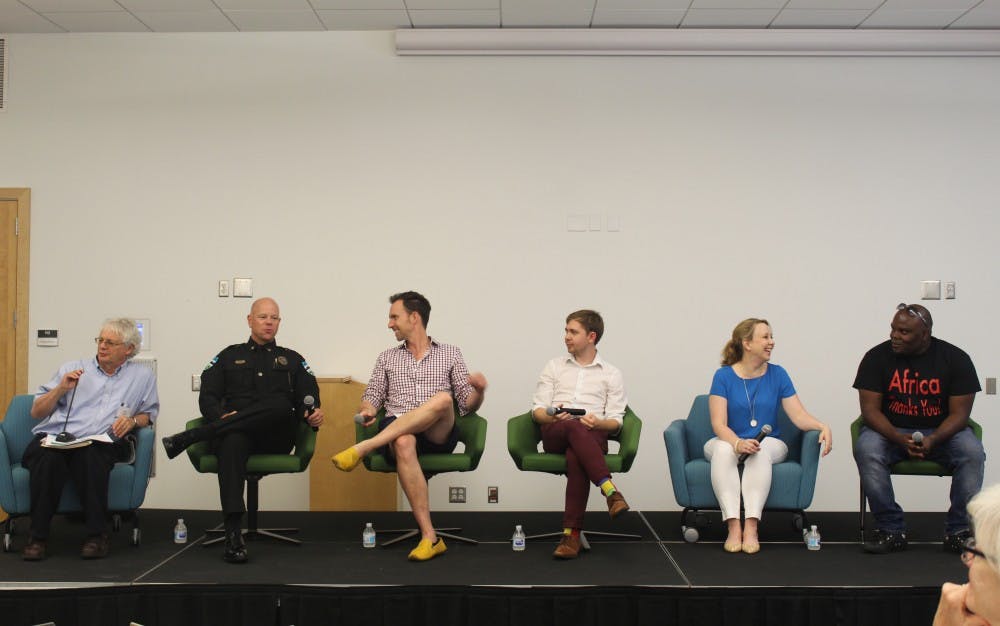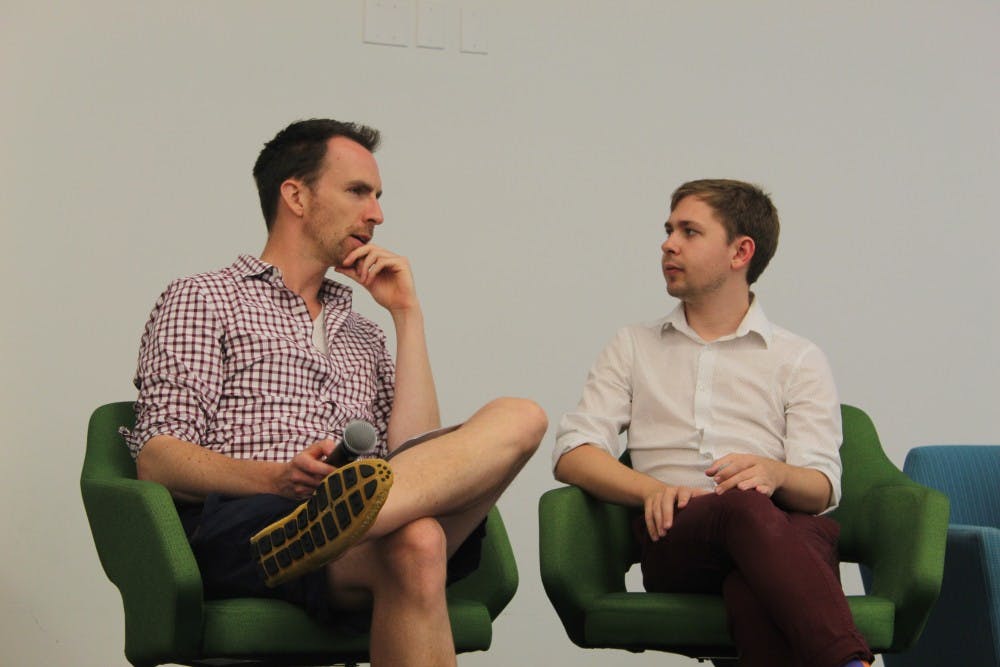Two UNC faculty members, a student, a chief of police and two authors walk into a library.
No, this isn't the start of a bad joke – all six actually met at the Chapel Hill Public Library on Thursday night to participate in a panel discussion about heroes, inspired by the PBS series The Great American Read.
Like The Great American Read, an eight-part series that highlights 100 of America’s best-loved novels, this panel featured a discussion of different acts of heroism displayed in literature as well as reality. Panelists included Director of Carolina Public Humanities Lloyd Kramer, authors Kwame Mbalia and Cate Lineberry, UNC assistant professor Al Duncan, UNC student Jack Davis and Chapel Hill Police Chief Chris Blue.
Topics of discussion included defining the difference between heroism and celebrity, the democratization of heroism and comparing how literature portrays heroes versus how they are portrayed by the media.

Lineberry, author of two books and former staff writer and editor at National Geographic Magazine, said that she most enjoys writing about unsung heroes that don’t seek to publicize their actions.
“I think about World War II. So many people took a vow of silence once they did something heroic and never talked about it their whole lives,” Lineberry said. “One reason why I enjoy going back in time and seeing these heroes that were unsung is because there is such a purity, it seems, that they did what they did for no other reason. They had no idea that 100 or 50 years later somebody was going to be writing about them.”




